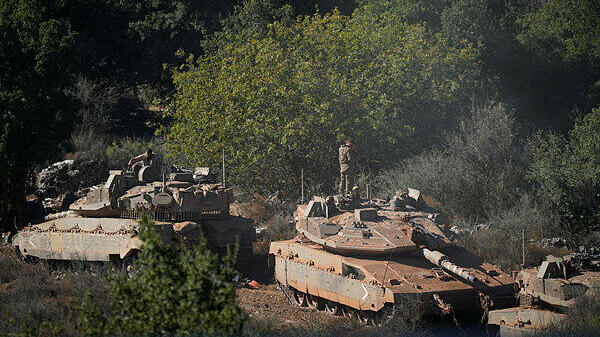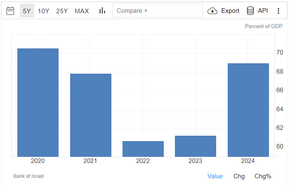Then why not support Assad, sign a formal peace, return the occupied territories to Syria, and have a stable-hostile neighboring Syria?
There were attempts. According to released memos, Mr Assad made maximalist demands and remained ambiguous about what Syria would offer in return.
As for Lil Assad, according this here, talks only started picking up in 2010 and by 2011 there were still major hurdles. And as you know 2011 is when the civil war started and any peace treaty was thrown out the window. You don't bet your national security on someone that can't even control his own territory.
All in all, it turned out very well. I opposed giving up the Golan at any cost, even for peace, and what happened since then only reinforced my opinion.
The last 2 years taught every Israeli that land for peace is a concept that should go extinct, and instead it's the Arab nations that should make tough concessions if they want peace.
Can you not see the issue? You are simultaneously claiming that hosting Iranian military bases puts you at war with Israel and claiming that Mexico hosting such a base would not put them at war with Israel.
I never made such claim. You may have misunderstood my claim, but I have clarified it several times. Mexico is not at war with Israel. It never was. So making peace with Mexico is not a possibility to begin with.
I don't know if statehood is at the core of it, but I believe it's a significant factor. If Gaza is an independent nation-state then Israeli behavior is one thing If it's a piece of Israel it's another
Palestinians never wanted statehood. They still don't. Understanding this is part of the foundation of understanding the Israeli-Palestinian conflict, especially in Gaza.
Gaza's formal status as state, autonomous region, or magical chunk of dirt - is irrelevant.
There are wars in Gaza because the people of Gaza prefer killing Jews over living ordinary lives. That is the basis of the conflict.
Freedom of operation is a 3rd or 4th order consideration. Like saying I only play card games to get queens.
I believe Israel prefers to have the answer be neither, so it doesn't have to be responsible for the population but can have full freedom of action. I think it's a good example of Israel preferring to operate in a gray area.
Israel had full freedom of action in Gaza in 2005. Then it withdrew that year and relinquished most of it. It didn't return until briefly in 2008 to a much more hostile and fortified Gaza. Despite many justifications to re-occupy it, it never did except briefly before pulling out.
I cannot recall a single policy item enacted by Israel that somehow contributed to freedom of action in Gaza that isn't a direct and temporary response to hostilities from Gaza.
don't believe this is true. See above vis-a-vis Gaza
Can you name 1 Israeli policy item that would constitute a breach of LOAC+IHL?
If you can't, at least name an informal norm.
The notion that Israel operates routinely outside international legal frameworks is a product of Arab propaganda that therefore cannot be substantiated. Have you never wondered why the biggest proponents of this theory lack any conversational depth?
Israel is the standard setter in LOAC+IHL. The only nation rivaling it is the US.
It's not a matter of nationalism. I personally do not believe in the legitimacy of any higher legal authority, and oppose some treaties thought to be "humane" like banning cluster munitions and anti personnel mines.
I also believe adherence to LOAC+IHL should be somewhat relaxed to reduce the immense budgetary strain. Compliance is incredibly costly due to the very high usage of expensive guided munitions, and overall more time consuming practices that Israel too can no longer afford 17 months into a war.
don't think the issue is so much quantity as it is visibility.
Why would visibility be an issue? More precisely, why should it be more visible? I find the European approach of boasting while doing little - disgusting. Israel should, IMO, advertize more its aid to Ukraine to counter influence campaigns. But I doubt that's a concern to you.
Yes I admit it does require research beyond the superficial to understand the true scope of Israeli aid to Ukraine. Per capita, it's outsized. But Israeli foreign policy has almost always been low-visibility.
I specifically pointed to Russia, a particularly crocodile-shaped European nation as a key actor who bears some (quite a bit) of responsibility here. I also pointed out the path would involve engaging with Turkey, and Israel as regional players.
It seems to me that your entire position is "Israel does no wrong" and "I don't care about the killings
Your "Israel does no wrong" comment very clearly ignores my long time stance that Israel made more wrong foreign policy decisions than right ones, under the current leadership in the last almost 20 years, more so beyond that.
I don't consider Russia a role model for anything. I do care about the killings, as indisputably demonstrated here. But I do not see a path forward to appease everyone. A realistic approach is preferred.
In December Israel destroyed most of the SAA's former arsenal, thus reducing tremendously the capacity for violence in Syria. Israel's demands for a DMZ in the south have forced HTS into a reconciliatory approach toward Druze. I also support Israel conducting a campaign to prevent Syria from rearming, especially under Turkish influence.
These are actions that take very little resources but yield very high gain.
Protecting any other ethnic group in Syria through means beyond that, will take more resources at much lower gain.
The Kurds are much more favorable to Israel and not far from the Alawites but protecting them is deemed almost untenable, although mostly because of Turkey.
The Alawites were given a shot at survival by Israel by leveling the ground. Now it's up to them to evolve as a society. Syria and its many factions cannot evolve back into a coherent entity if they'll keep relying on intervention so much.
As I am grateful to the many western nations for being cold to Israel in its early decades, as it taught those who lived here before me what security independence is.
Israel is happy to illegally occupy parts of Syria, along with certain other players. Israel should partake in helping resolve these issues. It doesn't have to be the main player or the only one. But some action should be taken.
As I explained:
1. Military occupation is not illegal. There is robust framework for what military occupation is and how it's conducted. It's about as illegal as owning a car. You can do illegal things with a car, but merely owning it is not inherently illegal. This perverts the concept of international law.
2. Israel already helped more than anyone else has, by a long shot. By disarming HTS of state-level arsenal and leaving them only on par with other factions. And by gradually enforcing a DMZ in southern Syria where that is realistic for the IDF's capabilities.
3. You have not suggested any concrete action, let alone one that is realistic. Saying "do more" doesn't count if it can't be backed up with an example.
That's not true. Israel hasn't backfilled any tanks for anyone sending them to Ukraine.
The war since October 7th has elevated Israel's own needs and tanks slated for export were returned to service.
IIRC within about a month, another brigade was already set up.
I think the issue was very clear. I never said Israel backfilled tanks.
It has backfilled small quantities of artillery, but again that's not the point.
That's not true. Israel exported about $4.5 billion to Europe in 2023 and a similar number in 2022 - spike years in Israeli defense exports and coinciding with the war in Ukraine.
These include air defenses, electronics, communication systems, radars, artillery, munitions, pilot training, airborne systems etc etc. Most of these stuff you can't physically send to Ukraine. But it does bolster European security where otherwise their industry can't cope, and it does give them better freedom to pick up obsolete stuff and send to Ukraine.
For many reasons, most of them practical, it makes a lot of sense for Israel to NOT send directly to Ukraine. Direct aid requires robust logistics and constant supply, and Israel cannot do that in wartime where munitions go first and foremost to it.
To assist Ukraine, Israel expedited deliveries to Europe and has not redirected Europe-bound weaponry to the IDF. But it cannot also sustain a supply chain to Ukraine when none is willing to fund it.
I'd be happy to see 2 dozen David's Sling batteries covering Ukraine, but unless the US can manufacture 5,000 Stunner missiles a year over what Israel needs for itself, at its own expense, I don't see how it happens practically.
It would also be incredibly unfair Israel give out its own stuff, in the middle of a war, while spending 10% of GDP already, when Europeans can't be bothered to lift a finger and spend a measly 2%.
and to the best of my knowledge Israel has avoided supplying actual weapons to Ukraine itself
Your knowledge is outdated.


 www.eunews.it
www.eunews.it





